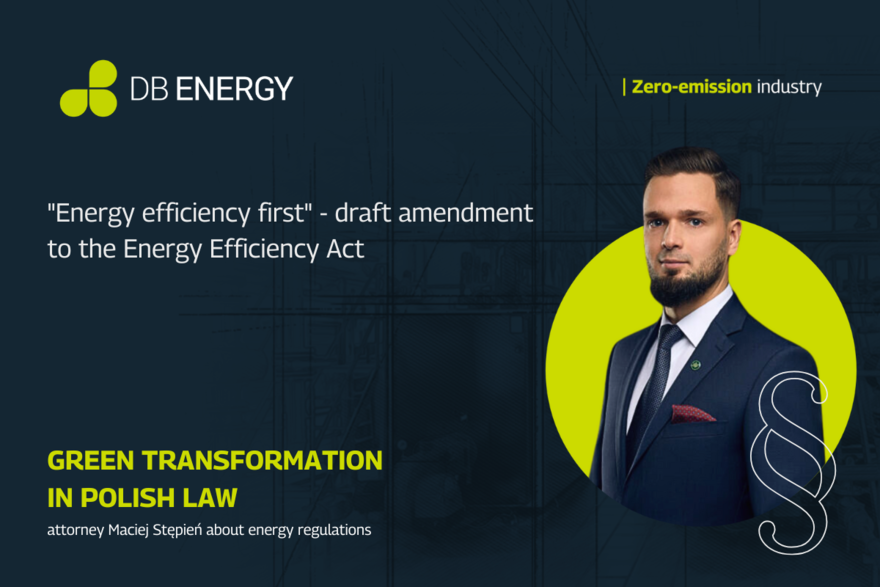"Energy efficiency first" – draft amendment to the Energy Efficiency Act
In light of rising energy costs and the challenges associated with preventing negative climate change, national regulations on energy efficiency are becoming increasingly important. In this context, The Ministry of Climate and Environment presented the shortened assumptions of the draft act amending the Energy Efficiency Act and certain other acts (draft number: UC77). The aim of the amendment is to adapt the Polish legal system to EU requirements in the field of energy efficiency, as well as to introduce solutions that support the implementation of climate goals and improve the competitiveness of the energy market.

Background and purpose of the amendment
The draft amendment to the Act aims to implement the necessary solutions resulting from Directive (EU) 2023/1791 of the European Parliament and of the Council of 13 September 2023 on energy efficiency and amending Regulation (EU) 2023/955 (recast) (OJ EU L 231, 20.09.2023, p. 1), hereinafter referred to as "Directive 2023/1791", including the necessary measures to promote energy efficiency, ensure the achievement of the energy efficiency targets for 2030, and further improve energy efficiency after 2030.
The most important changes in the draft act
The draft amendment to the Act assumes the introduction of a number of changes that apply to both the public and private sectors. The most important include:
- Systemic and sectoral implementation of the "energy efficiency first" principle – Article 3 of Directive 2023/1791 – meaning the investor's obligation to perform an analysis of energy efficiency solutions in the case of implementing projects or investments exceeding a budget of EUR 100 million (or EUR 175 million in the case of transport infrastructure projects).
- Establishment of a regulated profession of energy efficiency auditor, and thus the transfer of the burden of audit verification from the Energy Regulatory Office (URE) to auditors. This change will not only streamline the verification process but also contribute to improving the quality of energy efficiency audits. The project assumes the introduction of a qualification, accreditation, and certification system for the profession of energy auditor. These authorizations will be granted to persons after obtaining a positive result in the qualifying exam.
- Improvement of the rules for calculating energy savings and digitization of the energy efficiency certificate system.
- Adoption of a target to reduce final energy consumption by public institutions by 1.9% per year compared to 2021 and implementation of a system for monitoring and reporting obligations in this area.
- Setting and adopting a new national target for final energy savings, including a sub-target for achieving final energy savings in the area of energy poverty. This also includes modifications to the mechanisms for achieving the national target for final energy savings – Articles 9 and 10 of Directive 2023/1791.
- Obligations for companies to conduct an energy audit, implement an energy management system, and report on energy consumption.
The draft act amending the Energy Efficiency Act and certain other acts is a step toward a more sustainable energy policy that will affect both companies and public administration. The proposed changes are intended not only to adapt the regulations to EU requirements but also to improve energy efficiency, which in the long term will contribute to reducing energy costs and enhancing the competitiveness of the Polish economy. It is worth closely following the development of work on the draft amendment to the Energy Efficiency Act.
The proposed introduction of the profession of energy efficiency auditor should be considered a noteworthy change. One can certainly agree with the authors of the project that the performance of audits by certified auditors should significantly improve the quality of energy efficiency audits.
The planned date of adoption of the project by the Council of Ministers is the third quarter of 2025. Therefore, the changes may enter into force at the earliest at the end of this year or in 2026.
Source: List of legislative and programmatic works of the Council of Ministers